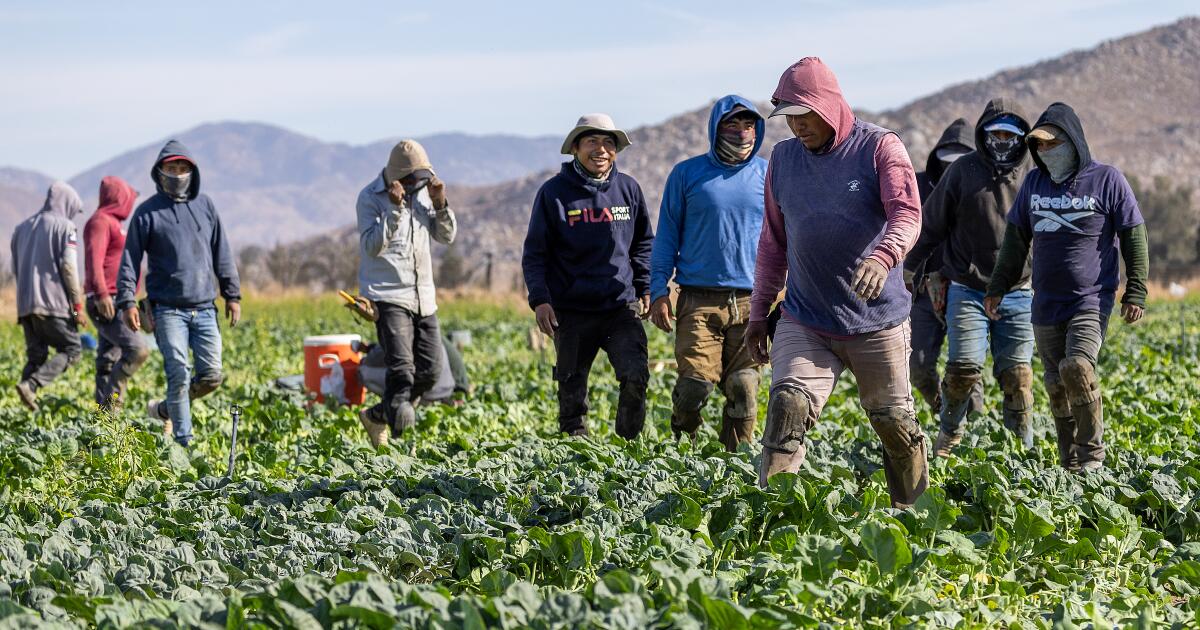Summary
California farmers, many of whom supported Trump, face a potential crisis as his immigration policies threaten mass deportations of undocumented workers, who make up at least half of the state’s 162,000 farm labor force.
Deportations could devastate agriculture, leading to labor shortages, unharvested crops, and rising food prices.
Farmers hope for solutions such as workforce legalization or expanded H-2A guest worker programs, though these have been criticized for exploitation risks.
Historical parallels to programs like “Operation Wetback” and the bracero system highlight possible labor and human rights challenges ahead.



Not many. But we’re not really talking about hobby farms.
You are misinformed and I strongly suspect do not know the technical definition of “hobby farm” but are using that as a term of derision to dismiss small farms so you can maintain your fictional notion that farmers are bad people. Have you thought much about where that prejudice comes from?
The vast majority of farms in California are under 300 acres. In the US 89% of all farms are classified as “small family farms” by the USDA, meaning they have less than $350k of gross income (GFCI, technically). Now you’ll see terms like “production value” mixed in with such reporting. Know that there’s an inherent problem with that - it’s geared only toward commodities, not speciality crops and particularly not those sold retail. That’s an important distinction.
Further, there has been a wave of new organic and sustainable farms popping up in California over the last 10-15 years. Do you think Trump supporters are starting small-scale organic/agroecological/regenerative farms?
I am by no means saying that large-scale industrial farms aren’t dominated by right-leaning people. But to generalize and outright dismiss farmers as a whole displays not only ignorance but prejudice that, critically, is tremendously damaging to small-scale organic/agroecological/regenerative farms as a whole.
89% by number of farms or by acreage? And do you have to sell your products to be called a farm, or does a small sustenance farm or backyard vegetable garden count as a farm?
And come one, dude. I’m happy you and some of your buddies aren’t Trumpers, but I spend a lot of time in Central CA and didn’t see any Harris signs anywhere. It’s Trump-land outside of Santa Barbara and SLO. Driving up 5 or 99 between LA and SF it’s all “Barbara Boxer created this drought” signs.
You couldn’t be bothered to look it up, eh? These are commercial farms - it’s the number.
And do you know what? The second someone asks about acreage in this context I have them pegged as someone who does not understand a damned thing about farming. Why? Because you the median net return for an acre of conventionally-grown corn is less than $130. The median net return for organic speciality crops can easily be $25-30k per acre or more. And yes, you can use that as a proxy for actual people fed.
Acreage means nothing in terms of feeding people. So tl;dr, do some research on what the USDA means by small family farm and learn about how those small family farms are feeding you. Why the fuck would you dismiss them like that?
Go on, go to a farmer’s market and ask any farmer to estimate how many people they feed relative to the size of their farm.
LOL. You know why? Because we’re not stupid and don’t want our tires slashed. If you are a liberal in a red county you keep that to yourself.